I partnered up with Lincoln Network over two years ago to lead a philanthropic product studio focused on a simple goal: make tech to bypass bad policy. I'm proud as punch of my team at this little skunkworks. We've turned out some great, impactful products in partnership with our donors. Here are just a few.
ViewHR: Take a Different View of Diversity Training

ViewHR is the leading alternative to divisive corporate diversity training.
Corporate spending on diversity initiatives now exceeds $8 billion per year in the USA, yet "here we are 40 years later and [DEI] has essentially nothing to show for it," as Professor Jonathan Haidt put it in a recent roundtable I hosted.

Instead, the evidence is that traditional anti-racist training is making workplaces more hostile by focusing on traits people can't change, like race.
And these counterproductive trainings aren't just wasting money, but a lot of time. For example, LinkedIn Training's diversity course costs $360 / employee per year, and it takes five hours to complete the ~70 different modules. (That's if participants even bother watching. Many tell us they start such videos and leave the room.)
ViewHR takes a radically different, evidence-based approach: see people as individuals and treat them with respect and charity. Created in partnership with the great Professor Ilana Redstone of University of Illinois at Urbana-Champaign, the on-demand and live training options launched September 1st, 2021, and are seeing great traction already.
Prizm: Find a Place Where Your Politics Work
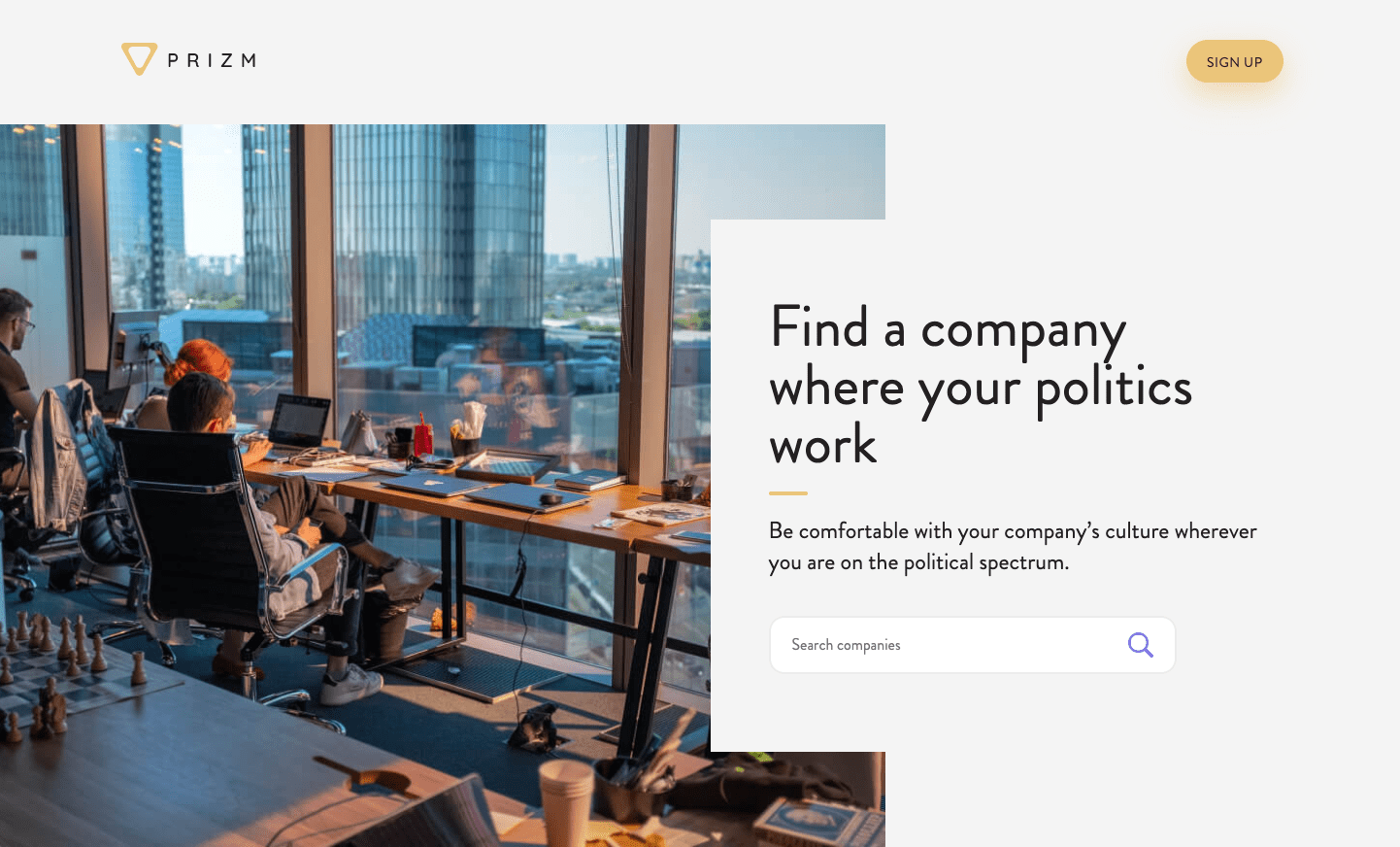
Prizm is Glassdoor for company politics. It gives jobseekers the signals they need to find workplaces with more tolerance for their viewpoints through real reviews from verified employees.
What is the best policy, political activism like Expensify or strict neutrality like Coinbase? Prizm creates a livestream of data companies need to see how their policies affect employee sentiment, broken out by viewpoints like right-leaning, left-leaning, libertarian, centrist, or apolitical. As Lincoln's Viewpoint Diversity Survey found in 2019, political activism in a company might get leaders kudos from a small and vocal minority of employees but it often makes hostile work environment for many others.
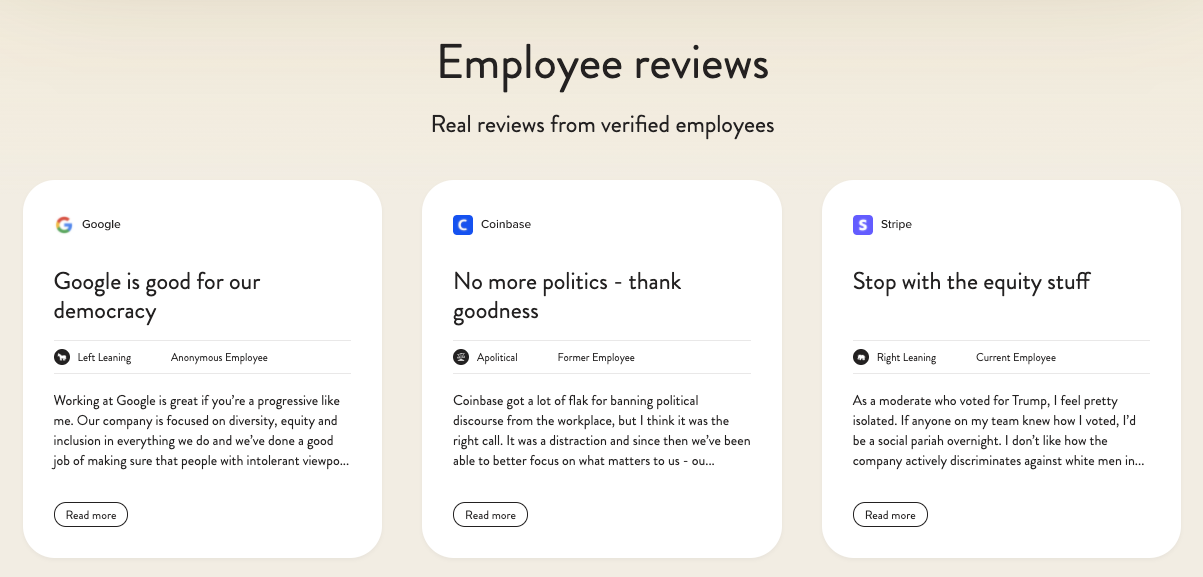
Schoolahoop: Find a Better School
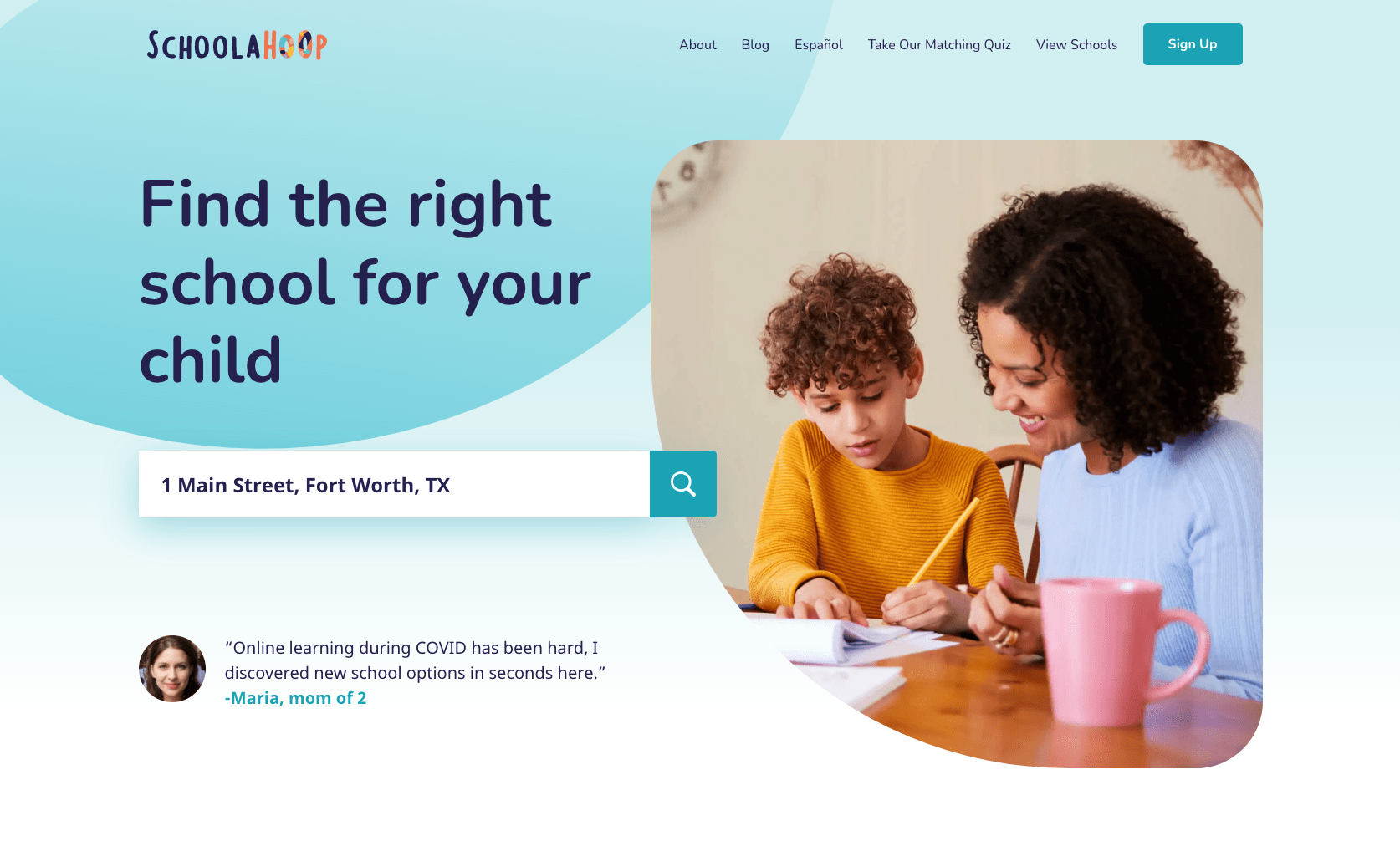
Schoolahoop is a school discovery engine.
My team's research identified that eight of ten parents can't name another option than their zoned public school, yet parents and kids have never been in greater need of choices. Existing research solutions are designed more for realtors than parents assessing their options. Tools like Great Schools and Niche not only hit parents with 30+ complicated data points per school, they tilt the playing field by sorting schools of choice to the bottom. A parent might have to have to scroll through five pages of schools they probably did not even qualify to attend due to zoning––past even failing public schools––to see the first private school. Microschools, homeschooling, learning pods, and virtual schools are all missing or at the bottom of the pile. These smaller options are particularly important for helping families during the pandemic, as identified in my research entitled "Honey, I Shrunk the School: How Coronavirus is Minifying Education" from May 2020. Polling by EdChoice finds around 80% of parents are interested in a smaller private education, like pods.
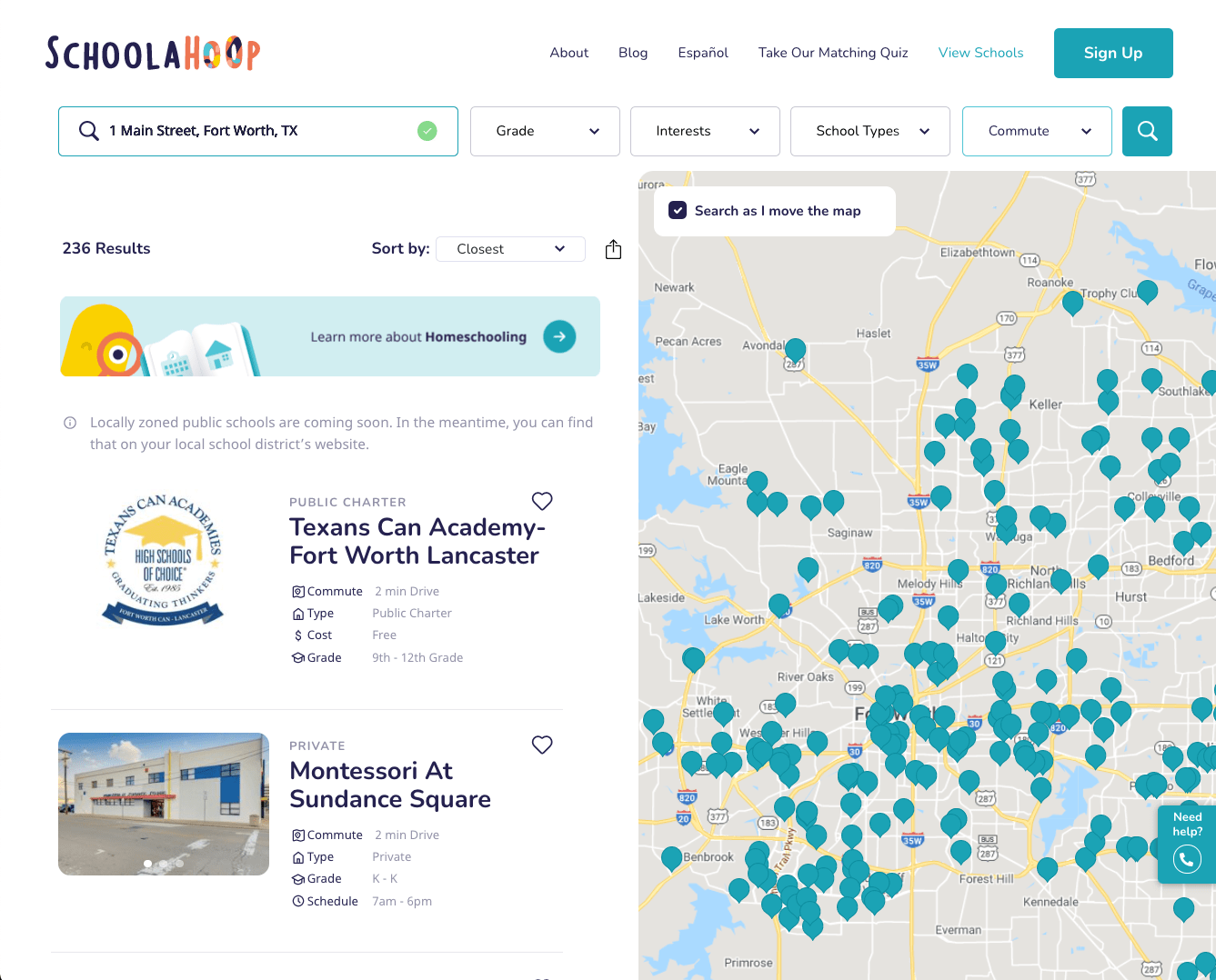
Schoolahoop has already helped tens of thousands of parents in Texas through a key partnership with The Miles Foundation. In addition, it is coming soon to Florida thanks to ExcelinEd, in Arizona thanks to EdChoice in partnership with Love Your School, and the team is now forming new partnerships to offer this vital service to parents nationwide.
Project Nickel: Tracking What Schools Spend
Do you know how much your local public school spends per pupil? Polling by EdChoice found that parents dramatically underestimate how much schools spend. Seeing the real dollar figure often changes parent perception of the value they're getting from that school. This is especially true during school closures and controversial safety protocols, like masking and distancing.
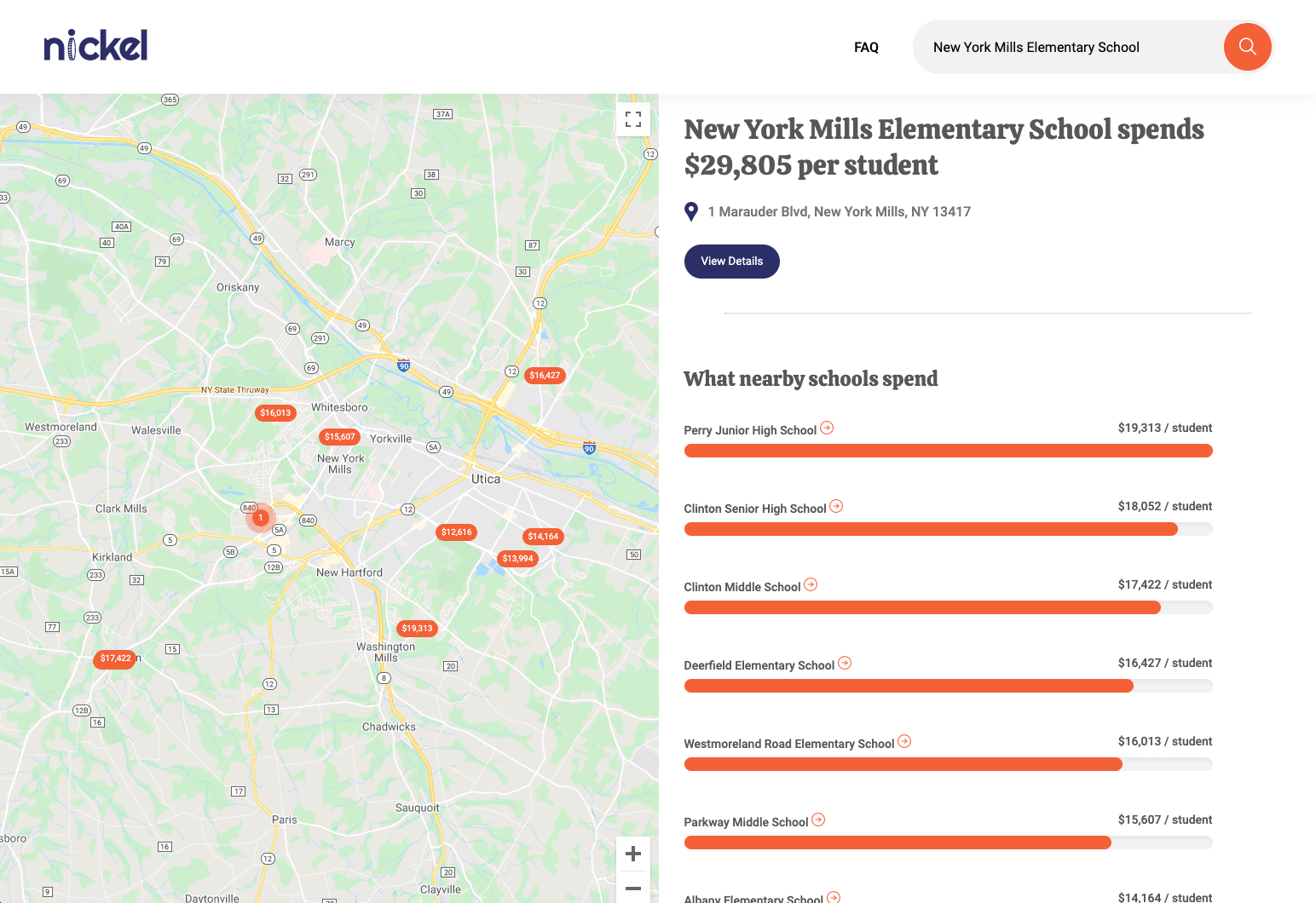
My own research in May 2020 found a serious catch-22 for schools, with roughly a third of parents saying they might withdraw kids if the safety protocols were either too strict or too lax to suit them. This trend has added momentum in many states to fund students not systems, giving parents the freedom to seek a school that better serves their child's needs.
Project Nickel is the first tool that makes it easy for parents, journalists, and policymakers to discover and compare what public schools spend per pupil. Incredibly, this data was never available until recently. This exciting project is a collaboration between Lincoln Studio and Dan Lips of Lincoln Policy, funded by EdChoice.
Edunity: Choice in public-sector union membership
Edunity made easy the previously impossible task of exercising choice in union membership for government employees. Prior to U.S. Supreme Court's Janus decision, these workers were forced to have a chunk of every paycheck go to a union that might even oppose their personal beliefs, like the top five public sector unions being 100% partisan in campaign contributions.
By integrating friendly embeddable forms and seamless identity verification with communication APIs for email, fax, and letters, Edunity provided a service that helped many people across the country take back control of their paychecks in a few clicks. These legal demand letters were also used in a number of key lawsuits further establishing worker rights before the project ended in mid-2020.
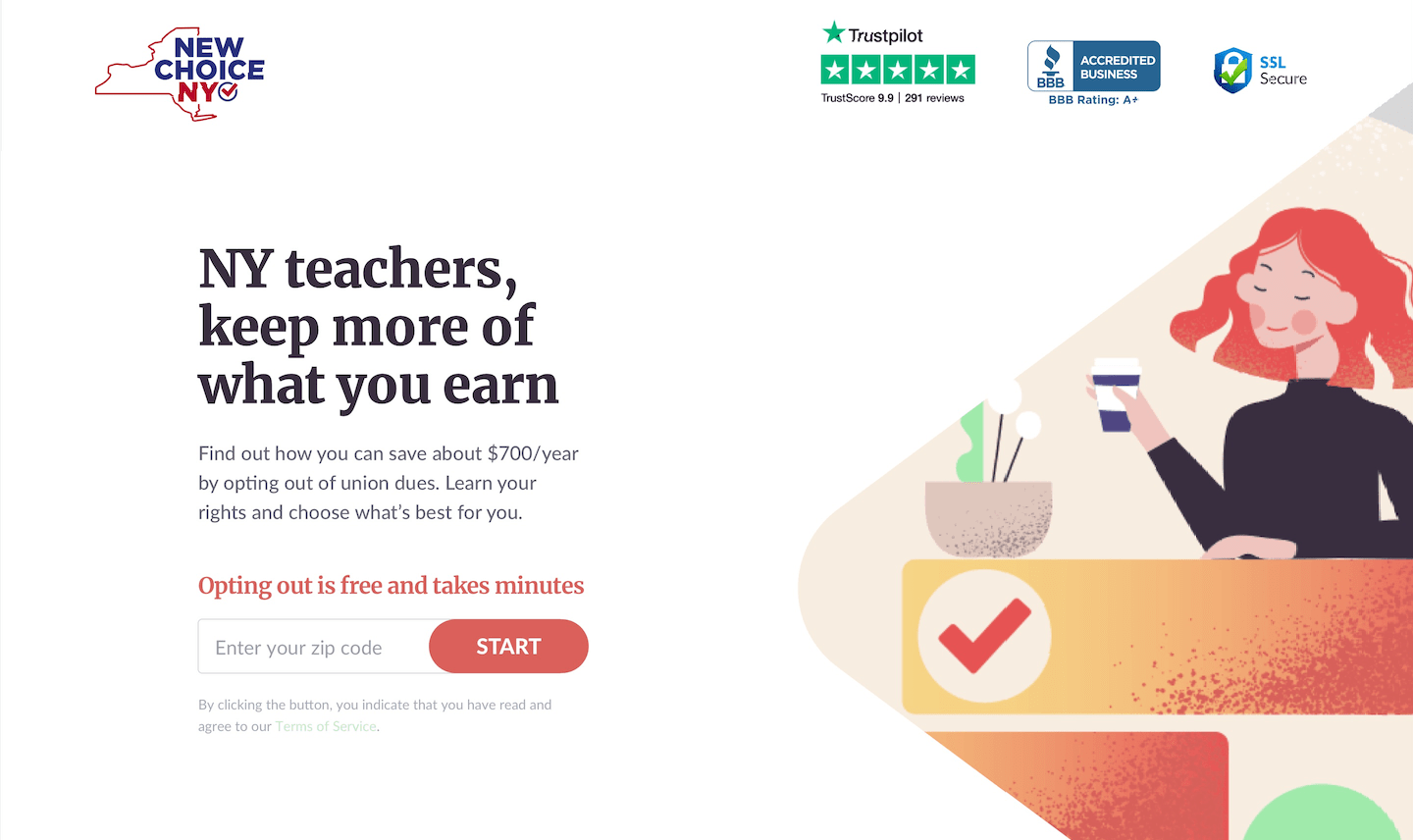
But my team's research also identified why fewer people were opting out than policy groups had predicted.
I also identified a path forward.
The main reason most people still want to stay in public sector unions is the safety net. Unions promise to provide a peer representative or lawyer in the event of a grievance or dismissal at work, although numerous members who opted out told us they found this turned out to be an empty promise in their case.
Most workers won't leave a safety net. But they would switch to a better one.
When presented with an affordable, apolitical alternative to union representation, we found government employees were 3x more likely to switch than simply opt out of their union.
My findings offer a touchstone to the worker freedom movement going forward: help more people by creating a better safety net without the politics, not just encouraging people to leave behind a safety net that most still want.
